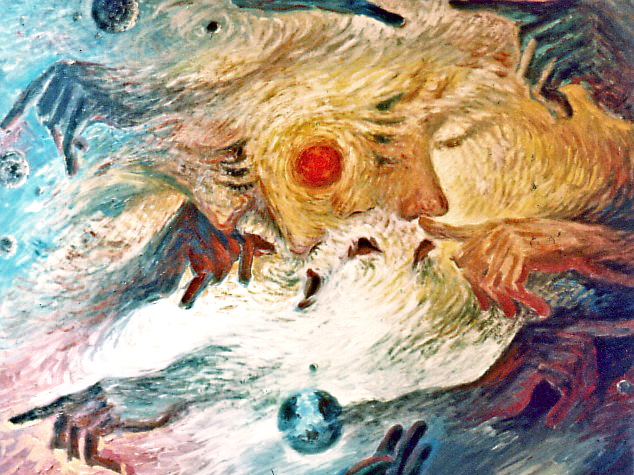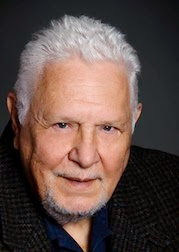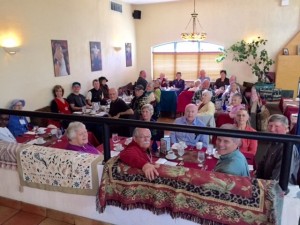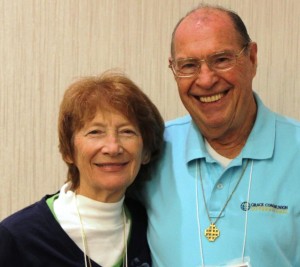Dear Brothers and Sisters,
 We’ve all had children ask us questions like, “Where do babies come from?” And there are the incessant “Why?” questions like, “Why is the sky blue?” The desire to know, simply for the sake of knowing, is what separates humans from animals. As C.S. Lewis observed, “We are inclined to ask, inasmuch as we must ask, because there is an answer.”
We’ve all had children ask us questions like, “Where do babies come from?” And there are the incessant “Why?” questions like, “Why is the sky blue?” The desire to know, simply for the sake of knowing, is what separates humans from animals. As C.S. Lewis observed, “We are inclined to ask, inasmuch as we must ask, because there is an answer.”
As a young child with an active curiosity, I asked my father (who was headed out the door to work) what has been called the ultimate philosophical question: “Why is there something rather than nothing?” He hurriedly replied, “I don’t have time to answer; go ask your mother.” I did and she replied, “God created it all.” I then asked her, “So where did God come from?” She replied, “He did not come from anywhere—he’s always existed and has always been alive. God is other-worldly.”

(used with permission via Wikimedia Commons)
At the time, I didn’t understand what she meant by “other-worldly,” but now in my mid-60s, I think I do. My mother was teaching me that God is not physical. T.F. Torrance addressed this truth by saying (along with the early church), that “God is not a creature.” By this he meant that God is not part of his creation. He is not enclosed by creation like a planet is enclosed in physical space and time. God who transcends creation, cannot be known in creaturely ways. He can only be known in “godly” ways, and that knowledge comes to us only through his self-revelation, including what he tells us about himself as creator of the “something” that is material reality.
The simple fact is this: apart from God there is no adequate answer to the ultimate philosophical question. All things that exist (other than God himself who is self-existing) come from the creative action of God who brought all things into existence. Furthermore, what God has created is not divine—not an extension or emanation of the divine. God alone is un-created and divine.
How the creation came about is addressed in the historic Christian doctrine of God’s creating out of nothing (creatio ex nihilo). This doctrine contrasts with the idea of creation out of eternal matter that preexisted alongside God (creatio ex materia), or creation out of an extension or emanation from the being of God (creatio ex deo). The Christian doctrine is not saying that something came from nothing—that would be nonsensical. Rather it is saying that creation came from God in a particular way. God did not use eternally preexisting “stuff” to create.
Science is unable to answer the fundamental philosophical question because discovering non-physical reality using the scientific method is a logical impossibility. As noted by the early church theologian Athanasius, things can only be known according to their nature and the scientific method is useful only for discovering physical causes of physical phenomena. Thus when scientists claim that the only things that exist are things discoverable by the scientific method, they are making a philosophical claim—what rightly would be referred to as “scientism.”
Because God who is un-created is not physical, concluding that everything that exists is detectable and thus knowable using the scientific method is wrong. But this fact does not prevent many scientists from making non-scientific assumptions, conveniently confining all existing things and all that is knowable to the limits of what their method is capable of discovering. Those who do so are using the limited results of their empirical methods to argue for what they are assuming philosophically. But no empirical experiment can confirm or disconfirm whether or not non-physical realities, such as un-created things (God), do exist or can be known by other non-scientific means, such as divine revelation. As T. F. Torrance reminds us, how we know (epistemology) does not determine what is (ontology). The reverse also is true: ontology (what is) determines epistemology (how we know).
Atheists and other skeptics frequently belittle the Christian answer to the ultimate philosophical question as an attempt to justify belief in God. Occasionally they try to debunk the Christian doctrine of creatio ex nihilo by challenging Christians to explain the properties of “nothing” (of course, nothing has no physical properties!). One such atheist, Christopher Hitchens, when asked, “What came before the Big Bang?” replied, “I’d love to know!” I think that reply was sincere, though he died not knowing the answer to his question (I imagine he knows the answer now!).

Atheist Victor Stenger defined nothing as a simple state without mass, energy, space, time, spin, bosons and fermions. He concluded that this state of nothing is an unstable system. But the question remains—How did we get from nothing to this unstable system called nothing? The question itself raises problems because it does not make rational sense. Nothing cannot be unstable since it comprises and encompasses not anything. There is nothing to be unstable in a state of nothing. I can’t refrain from chuckling as I hear such statements; but then my chuckling turns into sadness for those who spend their lives trying to deny the existence of God through such foolish reasoning, and for those who fall for such foolish reasoning.
In his book, The Fallacy of Fine-Tuning: Why the Universe is Not Designed for Us, Stenger belittles as myth the idea that the universe is fine-tuned. However, other scientists disagree. [1] Stephen Hawking (also an atheist) wrote this in his book, A Brief History of Time:
The laws of science, as we know them at present, contain many fundamental numbers, like the size of the electric charge of the electron and the ratio of the masses of the proton and the electron…. The remarkable fact is that the values of these numbers seem to have been very finely adjusted to make possible the development of life.
The evidence for fine-tuning raises the question, “What caused it?” Though some would answer “chance,” mathematician and astronomer Fred Hoyle noted in his book, Intelligent Universe that, “The chance of obtaining even a single functioning protein by chance combination of amino acids” can be compared to “a star system full of blind men solving Rubik’s Cube simultaneously.” This amazing statement came from a humanist who believed the universe always existed (without a creator) and has been constantly fine-tuning itself. Like other humanists and atheists, Hoyle resists the idea that the universe had a beginning because that would point to some sort of “beginner.” Hoyle mocked the idea of creation from nothing, by coining the term “the big bang.” Ironically, that term is now used for a mainstream theory explaining the origin of the universe.
Not all scientists mock the idea that fine-tuning points to a creator. Physicist John Polkinghorne, a Christian, wrote this: “Anthropic fine-tuning is too remarkable to be dismissed as just a happy accident.” While the empirical evidence of the fine-tuning of the universe may not scientifically prove God’s existence, it surely points to the presence of God’s fingerprints all over the cosmos. Some scientists, despite being atheists, in honestly seeking truth, have found God. A great read on that topic is the book, God’s Undertaker: Has Science Buried God? by John C. Lennox, professor of mathematics at Oxford.
It’s important to realize that our calling is not to compete or argue with atheists, but to trust God to work through mathematics, science, astronomy, and even cosmology to prompt them to seek him and find him in his self-revelation, which culminates in Jesus Christ. As Scripture indicates (Luke 10:22) and early church theologians stated, “Only God knows God; only God reveals God.”
Why do we believe in creatio ex nihilo? Because we believe in a God who is generative in his own Triune being. As Jesus teaches and as the New Testament bears witness, the Son is not created or made, but is eternally begotten of the Father in the Spirit. Why is there something rather than nothing? Because God is love and God is relationship among the triune Persons. The Father created through the Son in the Spirit in order to be in a living relationship of holy fellowship with his creation. Creation as well as redemption are acts of the Triune God that reflect or mirror in a limited (created) way the un-created dynamic inner life of the Trinity, which leads to the generation and regeneration of all created life. This life is a gift of grace in which we share for eternity through Jesus Christ.
Loving how science and theology fit together hand-in-glove,
Joseph Tkach
[1] Australian astrophysicist Luke Barnes refutes Stengler’s atheistic reasoning in a post on the Is There a God blog at www.is-there-a-god.info/blog/clues/the-fine-tuning-of-the-universe-stenger-vs-barnes/.














